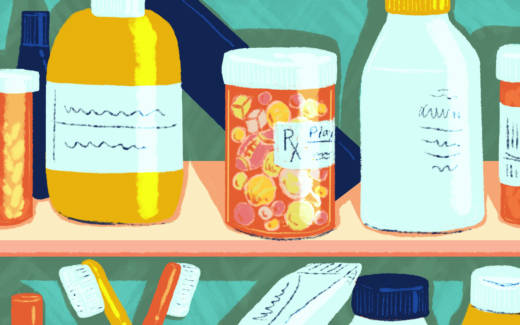Play is, by definition, intrinsically motivated. People and many animals do it just because. But apparently parents and teachers these days need more of a nudge than that to make the space for play. So here are some of the research findings that appear in the paper.
1. Play is essential for healthy brain development.
In order to grow and develop healthy connections, our brains need plenty of something called brain-derived neurotrophic factor, or BDNF. This paper cites studies showing what happened when young rats were allowed to tussle and tumble together. Half an hour of this kind of play actually changed the expression of their genes in a way that promoted the production of BDNF.
2. Play reduces obesity and associated diseases.
Toddlers with plenty of chances to run, jump and climb grow into kids who are physically confident and more likely to be active and healthy adults. One study cited in this paper looked at children in Head Start preschools, which serve low-income communities. The young ones who got at least an hour a day of outdoor play showed significant improvement in their body mass indexes. Those who got the most outdoor time were 42 percent less likely to be overweight by the end of the year, with positive associations strongest among children who grew up in the least-safe neighborhoods.
3. Play helps children manage stress and even recover from trauma.
This is an emerging area, and "we need much more research," says Hirsh-Pasek. The paper cites animal studies, as well as a study of a yearlong intervention in a preschool. Young children with disruptive behavior were assigned to play regularly, one-on-one with a teacher, with the adult letting the child take the lead. This is an approach known as "banking time," as in storing up warm, relationship-building moments. Compared to a control group, the children showed improved behavior and reduced cortisol, a stress hormone.
4. Play helps families bond.
Continuing with the theme of banking time, play is also important for building relationships between parents or other caregivers and kids, Hirsh-Pasek points out. "The conversations with kids that come out in play are brain-builders." And play encourages emotional attunement — getting on the same page, feelings-wise — which in turn can help children learn to regulate their emotions when the cookie crumbles.
5. Play contributes to academic skills.
No, everything doesn't have to be about test scores! But play is also good for test scores, says Hirsh-Pasek. This paper argues that at tender ages, improvisational pretend-play, not direct instruction, is what really feeds both language development and general knowledge, not to mention, again, kids' intrinsic motivation. Hirsh-Pasek suggests that parents start small.
"Playing with blocks for even two minutes helps you use words together. It builds greater STEM learning skills. And I think it benefits parents, too!"
Copyright 2018 NPR. To see more, visit http://www.npr.org/.
9(MDAxOTAwOTE4MDEyMTkxMDAzNjczZDljZA004))



9(MDAxOTAwOTE4MDEyMTkxMDAzNjczZDljZA004))